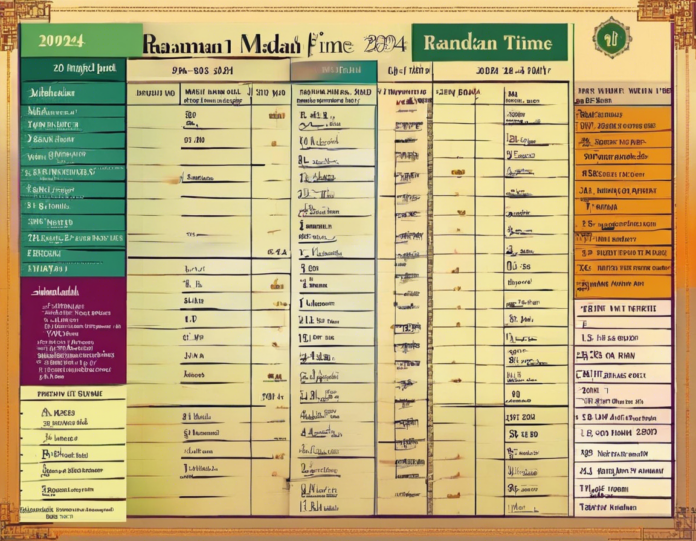Ramadan, the holiest month in Islam, is a time for reflection, prayer, fasting, and community. In 2024, Ramadan is expected to begin on the evening of Thursday, 21st March, and end on the evening of Saturday, 20th April, subject to the sighting of the moon. During this month, Muslims around the world will fast from dawn to sunset and engage in increased prayers, Quran recitation, and charitable activities.
In India, home to one of the largest Muslim populations in the world, Ramadan holds special significance. It is a time when families and communities come together to break their fasts, pray Taraweeh (special nightly prayers), and seek spiritual growth. Here is a comprehensive 2024 Ramadan time table for India to help you plan and make the most of this blessed month:
Iftar and Suhoor Timings:
- Iftar: The time to break the fast at sunset.
- Suhoor: The pre-dawn meal before the fast begins.
Prayer Times:
- Fajr: Dawn prayer before the fast starts.
- Dhuhr: Midday prayer.
- Asr: Afternoon prayer.
- Maghrib: Sunset prayer.
- Isha: Night prayer.
Key Dates:
- 21st March: Expected start of Ramadan.
- 9th April: Lailatul Qadr (Night of Power).
- 20th April: Expected end of Ramadan and Eid ul-Fitr celebrations.
Tips for a Healthy Ramadan:
- Hydrate well during non-fasting hours.
- Include fruits, vegetables, and protein-rich foods in your meals.
- Avoid overeating during Iftar to maintain energy levels during Taraweeh prayers.
Spiritual Activities:
- Recite the Quran daily.
- Engage in additional prayers and supplications.
- Seek forgiveness and make sincere dua (prayers).
Community Involvement:
- Share meals with neighbors and the less fortunate.
- Contribute to charitable causes and support those in need.
- Attend Taraweeh prayers at the mosque for a sense of community spirit.
Frequently Asked Questions (FAQs):
Q1: Can I fast while traveling?
A1: Yes, you can fast while traveling, but if it becomes excessively difficult, you can choose to fast later or make up for missed fasts after Ramadan.
Q2: Can children or elderly individuals fast during Ramadan?
A2: Children are not obligated to fast, while elderly individuals or those with health conditions may be exempt from fasting. It is important to prioritize health and well-being.
Q3: What is the significance of Lailatul Qadr?
A3: Lailatul Qadr, or the Night of Power, is considered the most blessed night of the year. It is believed to be the night when the Quran was first revealed to Prophet Muhammad.
Q4: How can I make the most of Ramadan spiritually?
A4: Engage in extra prayers, Quran recitation, acts of kindness, and seek forgiveness during this month. Reflect on your actions and seek personal growth.
Q5: How should I greet someone during Ramadan?
A5: You can greet someone with “Ramadan Mubarak” (Blessed Ramadan) or “Ramadan Kareem” (Generous Ramadan) as a way to convey good wishes for the month.
As you prepare for Ramadan in 2024, may this month bring you peace, blessings, and spiritual fulfillment. Remember to prioritize your health, engage in acts of kindness, and cherish the time spent in prayer and reflection. Ramadan Mubarak!












